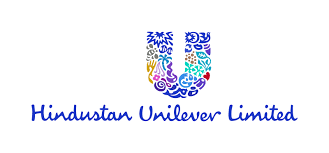Unilever, a multinational consumer goods company, has recently identified India as a strategic pivot in its global plan for the beauty and wellbeing market. The firm’s Indian subsidiary, Hindustan Unilever (HUL), commands over half the market in this area, situating India as a top priority for the company.
Speaking at the Deutsche Bank-dbAccess Global Consumer Conference, Fernando Fernandez, President of Beauty and Wellbeing at Unilever, asserted the company’s firm belief in India’s potential. The country’s market share in haircare and skincare is four times that of their closest rival, positioning Unilever strongly in a critical marketplace.
While Unilever has bifurcated its operations into five segments globally, the personal care and beauty, along with wellbeing sections, are under one division in India. This approach seems to be working, as HUL’s beauty and personal care unit accounts for 37% of its total sales and 44% of its operating profits. Five prominent brands, including Lux and Pond’s, contribute more than Rs 2,000 crore of annual revenue.
Fernandez envisages India playing a role for Unilever in beauty and wellbeing akin to what China represented for its competitors in the previous decade. Over the past ten years, HUL has expanded its market share in the hair-care category from 43% to 55%, while its competitors lost a 10% stake in the same duration.
HUL, the manufacturer of leading brands Dove and Sunsilk, controls nearly two-thirds of the shampoo market and around three-fourths of conditioners. It competes with global giants such as L’Oreal and Procter & Gamble, as well as emerging local firms like Mama Earth and Sugar Cosmetics. It has also ventured into digital-first brands, namely Simple, Love Beauty & Planet, Baby Dove, Acne Squad, and Find Your Happy Place.
The beauty and personal care sector in India is anticipated to grow at a CAGR of 12% to reach Rs 1.9 lakh crore by 2025. This growth is propelled by increasing urbanization, a young demographic, and other socio-economic factors. Industry experts forecast an uptick in demand for clean beauty products, underlining the importance of ingredients, sourcing, environmental consciousness, and diversity.
Also Read: Hindustan Unilever Sells Annapurna and Captain Cook Brands to Uma Global Foods
Prateek Ruhail, co-founder of the Agility Ventures-backed beauty marketplace Vanity Wagon, speaks of a remarkable surge in India’s beauty category. He identifies rising income, social media influence, and the shift towards conscious beauty as significant factors fueling this growth. He also notes a growing preference for products with natural and organic ingredients, reflecting an increased consciousness of health and environmental impacts.
Retailers such as Tata, Shoppers Stop, and Reliance have also shown interest in the segment, launching their own beauty products stores. They aim to compete with online beauty retailers like Nykaa and NewU.
This article is based on the report from the siliconindia website.
















